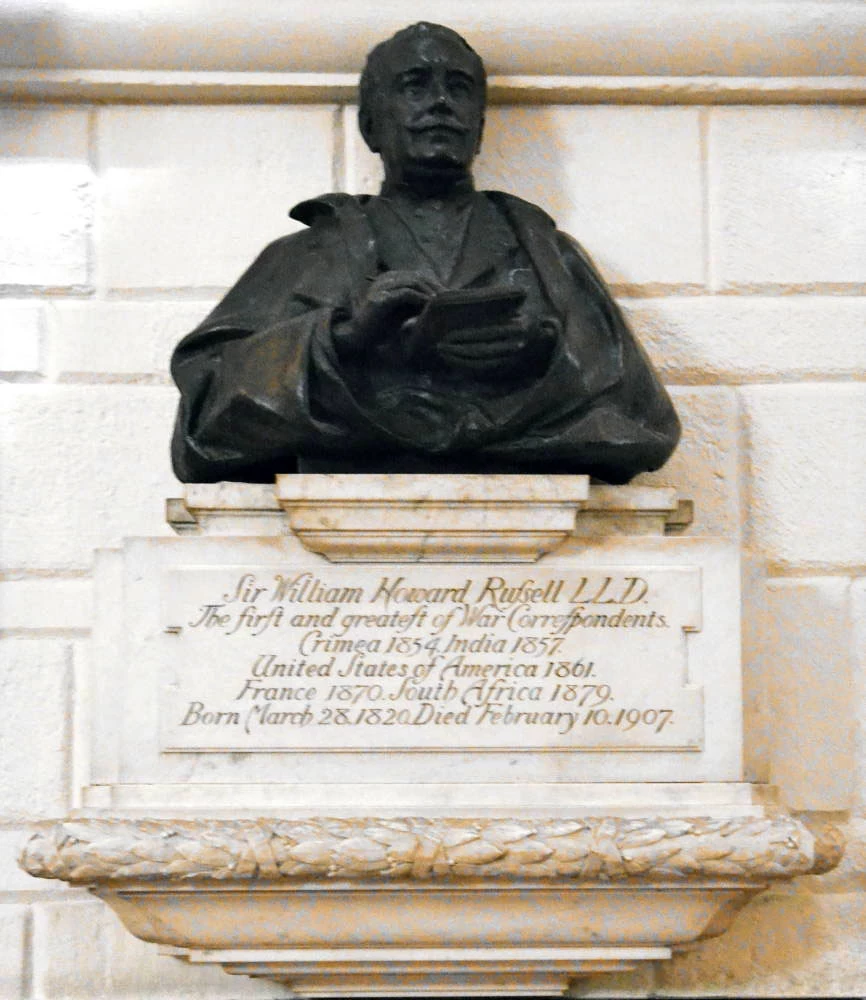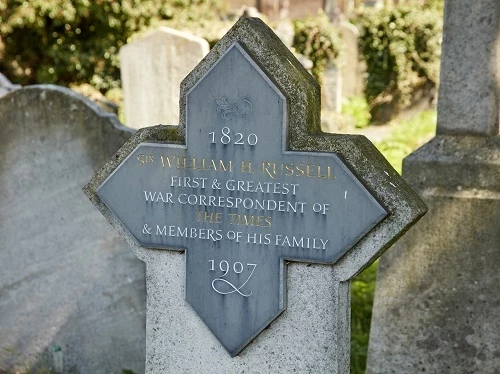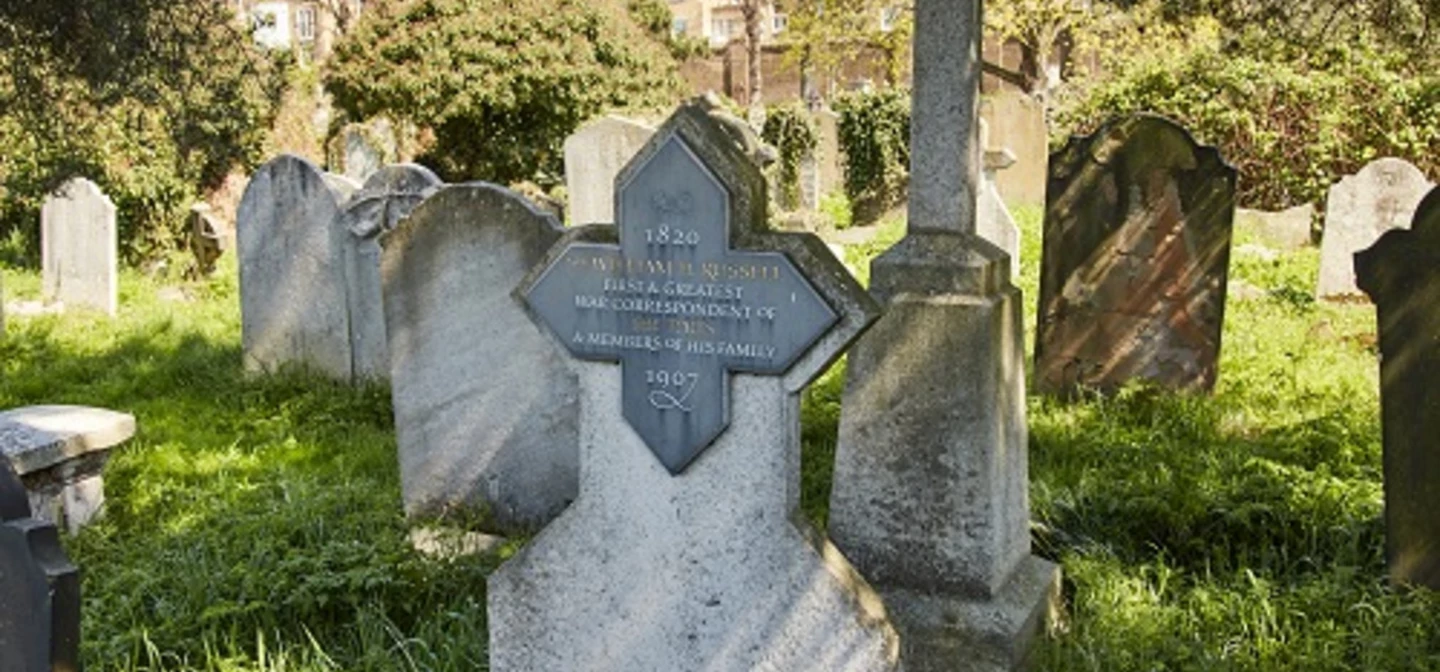
William Howard Russell (1820-1907)
'The first and greatest of War Correspondents'.
The Charge of the Light Brigade
Irish reporter Sir William Howard Russell witnessed the Charge of the Light Brigade in 1854. His vivid Crimean War dispatches – particularly about the appalling conditions the troops suffered – brought the bitter reality of conflict home for the first time. His reports inspired many people, including Florence Nightingale, founder of modern nursing.
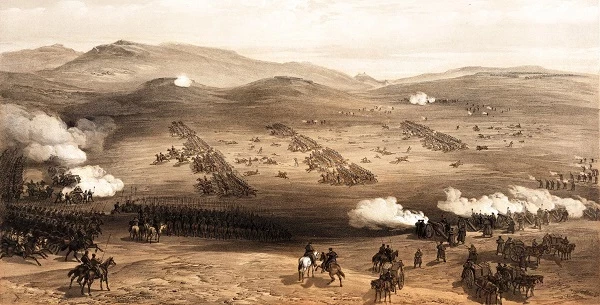
The reporter
Russell was born near Dublin, privately educated, and largely brought up by his grandparents. He entered journalism when his cousin, who worked for The Times, was looking for a reporter in Ireland. Russell’s lively and colourful style appealed to the paper, and he continued to write periodically for The Times for the rest of his career.
His first experience of war reporting came in 1850 in Denmark, but he made his name four years later in Russia. He covered the Crimean War, including the siege of Sevastopol and the battle at Balaklava, and later on the Indian Mutiny, the Franco-Prussian War and the Anglo-Zulu war.
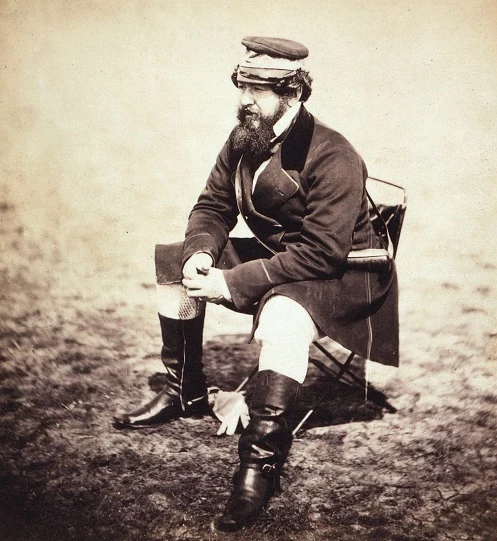
War Correspondent
Russell was great fun and good company, liked a drink and enjoyed his food. He was also brave, impulsive, outspoken, and sometimes careless and unfair. He mixed with, and gathered his stories from, the lower ranks and ordinary soldiers, and reported mishaps and mistakes as well as successes and heroism. He was never afraid to share his views. He opposed slavery while visiting America, criticised British behaviour towards the Indians, and reported army misconduct during the Anglo-Zulu War.
His writing gave people back home a new perspective on conflict, and made Russell unpopular with many in the services and government. But his unflinching reports also stirred the public’s support, and inspired change on the battlefield. As a result, money was found to send Florence Nightingale and her nurses to the Crimea, and Russell’s publicity of the care provided there by nurse Mary Seacole saved her from bankruptcy. His influence continued throughout his long career.
